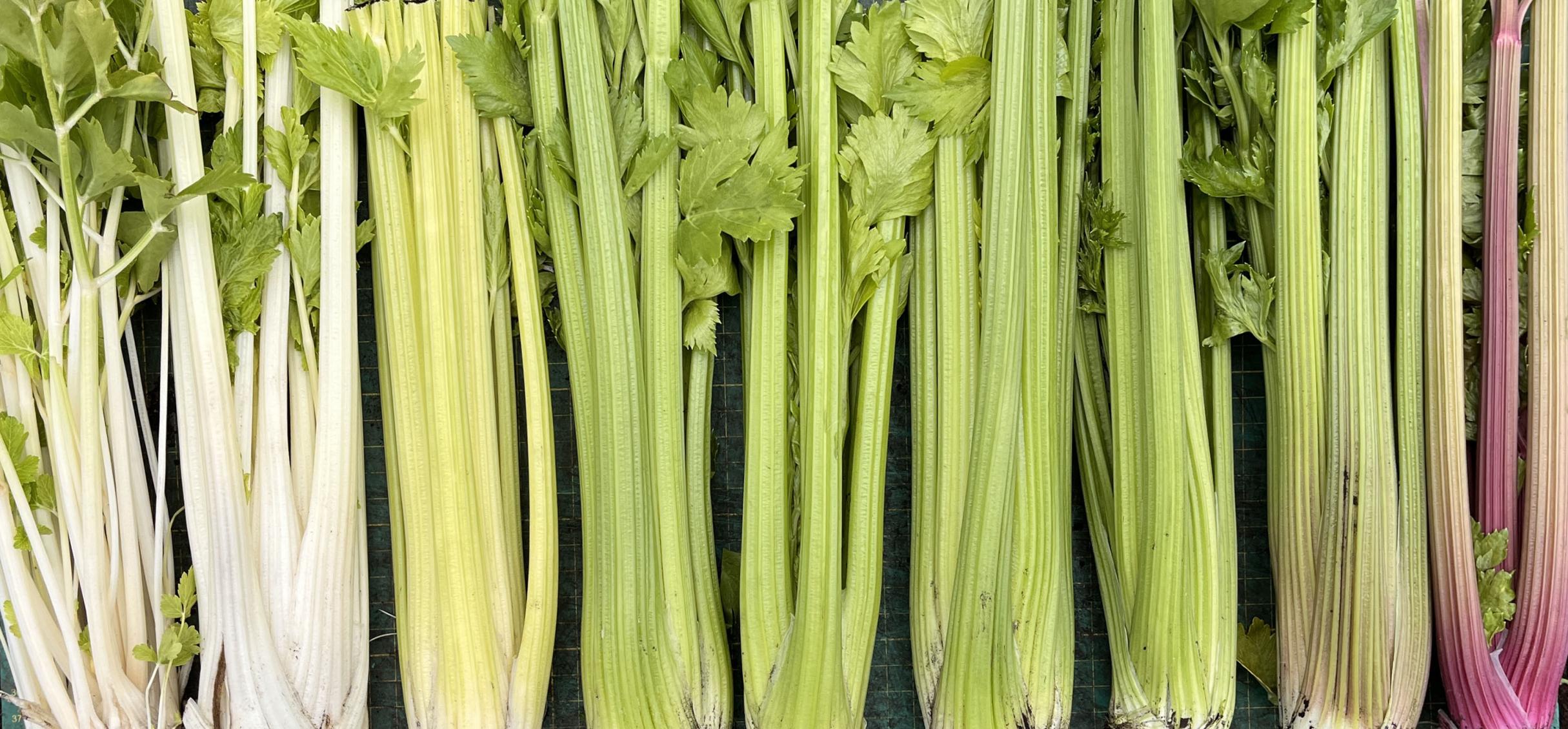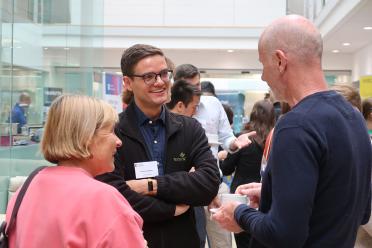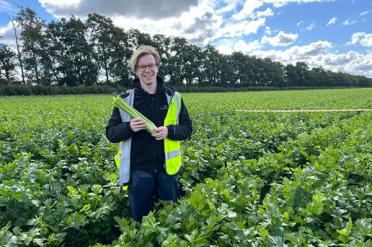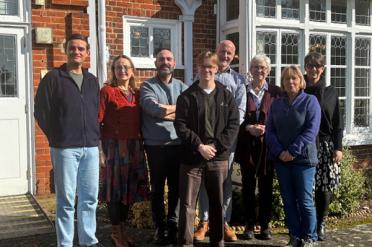
Earlham Institute and Tozer seeds are working together to harness celery diversity and develop varieties that meet the needs of both producers and consumers.
There is immense value in connecting growers, researchers, and breeders to produce commercially focused research. Dr Jamie Pike, a researcher working between the Tozer Seeds Research and Development department and the Jose De Vega Group at Earlham Institute, is a prime example of how successful this approach can be.
There is an urgent need to develop improved, more resilient crops, both to cope with increasing global demand and to introduce resilience to climate change and plant pathogens.
Working together in the field and the lab, this collaboration aims to harness celery diversity and develop varieties that meet the needs of both producers and consumers. With resistant plant pathogens such as Fusarium becoming more widespread - causing stunted growth, internal browning, and wilting leaves - Jamie's collaborative work is critical to ensure the longevity of this crop.

This collaboration has been enabled through a Knowledge Transfer Partnership project between the Earlham Institute and Tozer Seeds. Knowledge Transfer Partnership awards help to bridge the gap between academia and industry.
This project is helping breeders take the approaches Earlham Institute have developed and benchmarked in some major crops and adopt these in crops that are under resourced but important for UK food security.
As Dr Jamie Pike explained, ''Through this Knowledge Transfer Partnership I get the best of both worlds. I can apply cutting-edge science directly to real-world breeding challenges. For Tozer Seeds, it brings access to novel approaches and world class expertise that accelerate variety development, while for the Earlham Institute, it provides a route to see research translated into impact.''

Fundamental to the success of this research is a large-scale field trial containing 96 different celery varieties, hosted by celery grower G's Wissey Farms.
A recent visit brought together representatives from the Earlham Institute, Tozer Seeds, G's, ADAS, and Harper Adams University to showcase celery diversity and discuss how collaboration between academia and industry can directly benefit growers.
The partnership uses much of the Earlham Institute’s existing expertise, pipelines, and software tools to assess a range of phenotypes and genotypes, from which they can identify the right genetic markers for these traits. Those new markers will allow these beneficial traits to be brought into the breeding process.
The field trial focused on addressing key grower challenges and desirable traits, including bolt tolerance (delayed premature flowering) and reduced side shoots (minimising unwanted shoots growing from the plant's base to reduce harvesting time).
Jamie has combined data collected from this trial with genomic analysis to identify DNA markers, which will then be used to design lab tests for screening new celery lines.

“Dr Pike is embedding this knowledge within an innovative commercial business so that successful new varieties that respond to fast evolving challenges such as climate change and disease can be more quickly developed than traditional techniques currently used, potentially saving us years of work,” said Dr Liliya Serazetdinova, Head of Business Development and Impact.
This collaborative approach will significantly accelerate the breeding process, enabling faster development of disease-resistant varieties with the traits growers need -supporting a more resilient and sustainable celery sector for the future.


The Earlham Institute pioneers the use of new technologies to overcome issues of scale and complexity in data-driven biology, including approaches that could be used to accelerate crop breeding.
The partnership benefits from the bioinformatics expertise within the Institute, making use of many of the innovations developed in-house for genomic predictions and marker identification.
KTP Awards enable cutting-edge research to be applied in an industrial setting, supporting the implementation of new marker-assisted and genomic-based selection methods for desirable traits in celery and other vegetables commercialised by Tozer.
Based on original article written by Dr Jamie Pike for Tozer Seeds.


